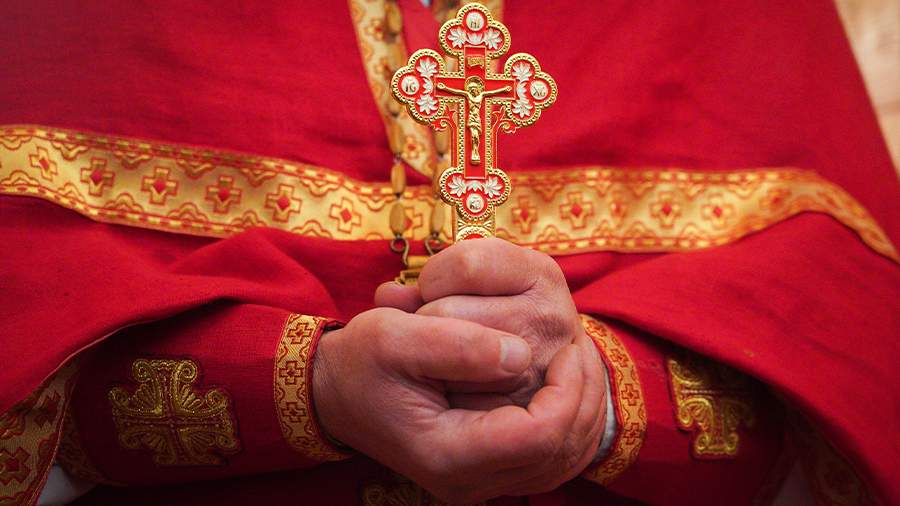What is the church holiday on March 13: Vasily Kapelnik — what not to do, folk signs
- Новости
- Local news
- What is the church holiday on March 13: Vasily Kapelnik — what not to do, folk signs

Every year on March 13, Orthodox believers honor the memory of the Great Martyr Basil the Confessor, or Decapolite, who lived in the 8th century. In the national calendar, the holiday is called Vasily Kapelnik. In 2025, it falls on Thursday. Read about the history, traditions and signs of the date in the Izvestia article.
What is the church and national holiday on March 13, 2025
St. Basil the Confessor lived in the 8th century in Byzantium during the reign of Emperor Leo III the Isaurian, who pursued a strict policy of iconoclasm directed against the veneration of holy images.
Basil devoted himself to Christianity from his youth, taking monastic vows under the guidance of the famous ascetic Procopius the Decapolite and becoming his faithful disciple. Together they preached Orthodoxy, despite strict prohibitions and persecution, for which they were arrested.
The brutal torture and the long imprisonment that followed could not break the faith of Basil and Prokopius. They languished in captivity until the death of Emperor Leo III, and after their release they returned to monastic service, continuing to strengthen the faith of the citizens and instruct them in a virtuous life.
St. Basil the Confessor died peacefully in the year 750, leaving behind a memory of spiritual fortitude and devotion to the Orthodox faith, for which he was later canonized.
What not to do today: superstitions and prohibitions
In the national calendar, the saint's memorial day was known by "talking" names indicating the active awakening of nature after winter: Vasily Teply, Vasily Kapelnik.
It was customary for the ancestors to visit the temple on St. Basil's Morning. Before the icon of the saint, they prayed for the strength of faith and family happiness. They also asked him for protection from illnesses and dark forces.
In Russia, pine branches were brought to the house on this day, which, according to legend, helped to expel evil spirits from the dwelling. Needles were also used for medicinal purposes — an infusion was prepared from needles, which was drunk by the whole family. It was believed that it helps to maintain health throughout the year.
A special ritual was also performed for the treatment of dropsy in children. The child was wrapped in a sheepskin coat, laid on the threshold, the father drove the sheep into the house and drove them outside again. People believed that animals, stepping over a baby, take the disease with them.
Saint Basil was considered by his ancestors to be the patron saint of labor, therefore, on the day of veneration of the saint, one should work — those who showed diligence could count on a generous harvest of grain and good luck in business.
Various bans were in effect on March 13. For example, one should not sweep or do wet cleaning in the house, so as not to "sweep out" luck and prosperity. People believed that if they started cleaning on a holiday, they would have to deal with difficulties all year round. On this occasion, the ancestors sentenced: "If you wash the floor for Vasily, you'll be out of money all year."
In Russia, it was believed that on this day, evil spirits, trying to enter the house, took the form of animals or possessed wicked people. Therefore, the doors were kept tightly closed, and in the evenings they tried not to go outside unless they really needed to.
Vasily Kapelnik holiday: folk signs
The snow on the roofs of Vasily Kapelnik was starting to melt. On this day, the ancestors watched the icicles and said: "Look at St. Basil's day at the drippers (icicles) — and the drops will go," "Vasily will come — and winter will cry." According to their shape, they judged what the harvest would be. For example, the long ones promised that good, "long" flax would grow.
A rainy day foreshadowed a warm and moderately humid summer, and a clear sky meant a bountiful harvest. Cloudy weather promised night frosts. If the snow melted in circles around the trees, it was believed that spring would be protracted.
Earlier, Izvestia told about the traditions and signs of the national holiday of Prokop Dorogorushitel.
Переведено сервисом «Яндекс Переводчик»


